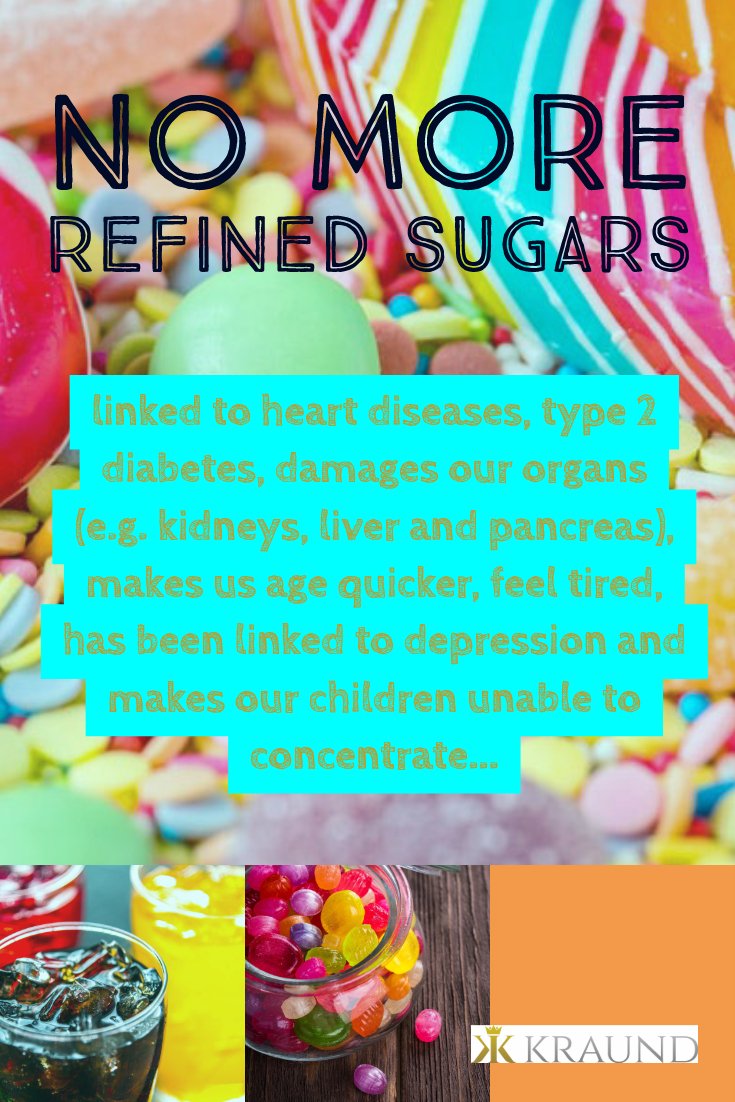
Over-consuming sugar can cause many terrible diseases and can damage our bodies and compromise our health. However, it is important to appreciate that not all sugars are the same.
Some of the effects of over-consuming sugar are:
The link between type 2 diabetes and sugar has been clearly established. Type 2 diabetes means having high glucose levels in the bloodstream and insulin resistance. Consuming too much sugar is also considered to increase the risk of cardiovascular disease. The liver becomes overloaded since sugar is metabolised in the same manner as alcohol. When one persistently eats too much sugar, too much fat builds up in the liver and our stomach becomes very acidic. Moreover, sugar causes chronic inflammation in the body and increases our blood pressure levels. Diabetes, weight gain, a fatty liver, inflammation are all factors which heighten the risk of cardiovascular disease. Sugar also increases the risk of having high cholesterol, high blood pressure, and strokes.
It damages our organs e.g. our kidneys, pancreas, and liver.
Furthermore, refined sugar also undermines our immune system. The cells which fight off bacteria do not function for some time after we consume sugar.
Sugar can make you feel fatigued and tired. The reason is that our blood glucose levels spike and then suddenly fall, leaving us feeling sluggish.
Sugar also undermines our mind’s ability to think clearly and to concentrate and therefore causes concentration issues and headaches. While the brain runs on glucose, refined sugars, such as white sugar or even worse high-fructose corn syrup (HFCS), incrementally harm our cells, particularly brain cells. Refined sugars may be fought by our bodies like a bacteria and virus, resulting in cognitive issues linked to Alzheimer's disease. The stress hormone cortisol also becomes released when we have a high blood sugar level. Free radicals caused by refined sugar consumption damage our cells and cause inflammation and may interrupt communication between cells. Our brain wave state can also become interfered with.
Refined sugar consumption has also been linked with depression, anxiety, crankiness, even personality disorders. Refined sugar is a simple sugar, as opposed to a naturally occurring complex carbohydrate found, for instance, in fruits. The brain is not built to cope with regular high sugar levels. It creates a dependency which is stronger than that caused by cocaine. As mentioned, sugar contributes to inflammation and inflammation has also been linked to depression.
Sugar consumption can also lead to hormonal imbalance in both children and adults.
When children consume refined sugar, more adrenaline is released. This hormone makes children excited, causes them anxiety and concentration issues. Parents should therefore not assume that simply because there exists an abundance of sweet treats for children that they are good for the well-being of our children.
Refined sugar consumption speeds up the aging process. So, if you do not like wrinkles and grey hair, you are better off changing your diet.
We are all aware that refined sugar consumption causes weight gain and obesity.
This brief summary of the damaging effect of sugar highlights that it is essential for our health to cut out refined sugar, especially HFCS and white sugar, and to eat foods which have a low glycaemic index. While this may sound daunting for all those with a sweet tooth, just swap your unhealthy sugary treats against fruits and dried fruits and carob pods. Sweeten your coffee and tea with licorice root or stevia leaves. You can also add some carob molasse and dates to your home-made almond milk and add this to your black tea or coffee.
The FDA hasn't assessed the statements. The information is provided for informational purposes only. It's not intended to substitute medical advice or diagnosis by your doctor or other medical professionals. These herbs and products aren't meant to diagnose, treat, prevent or cure any illness. Please always consult your healthcare professional.
Thank you for the votes!